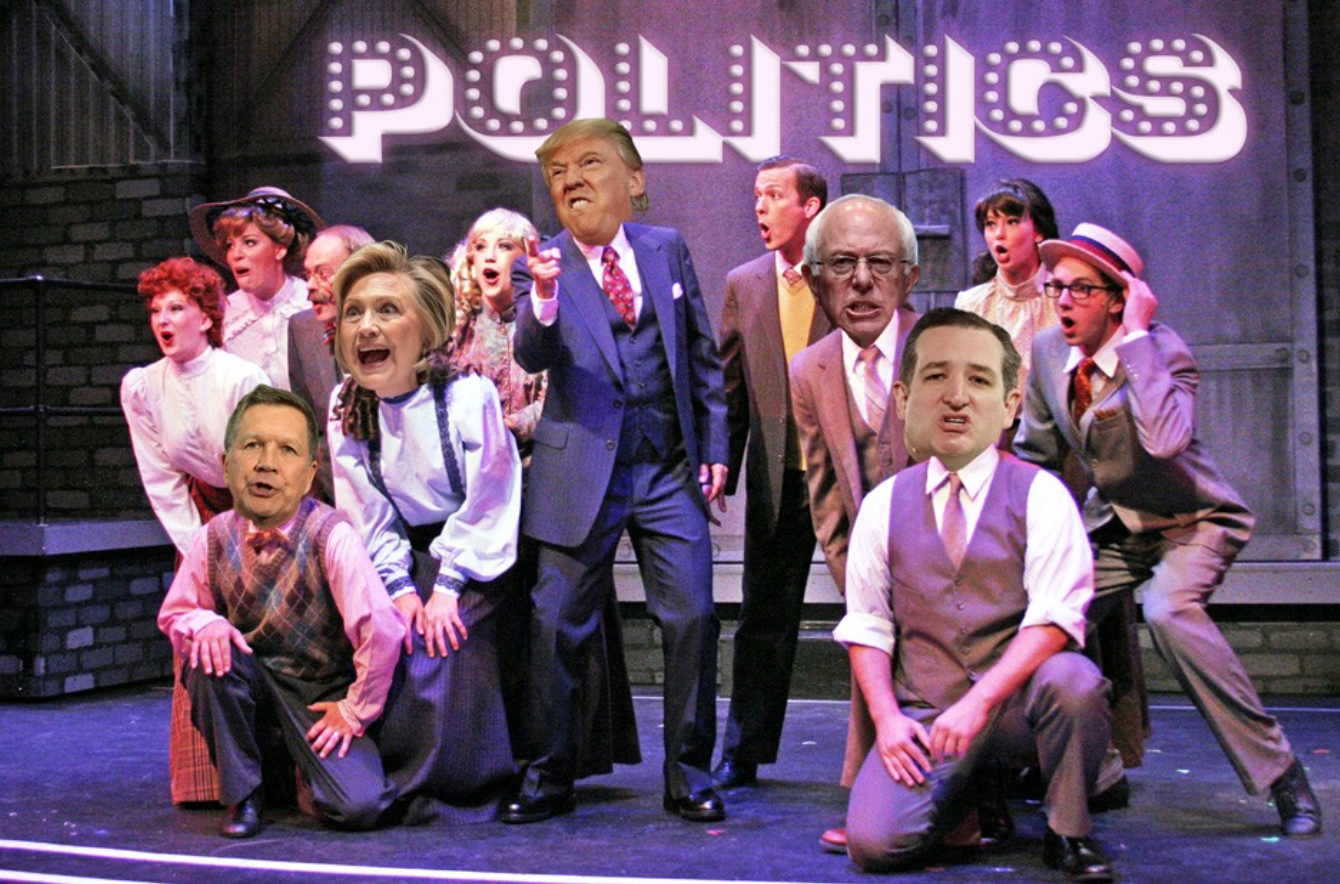With the American presidential primaries in full swing and the Conservative Party leadership race starting to roll, the next few months will see us awash in a tidal wave of analysis and conjecture and "hot takes" from pundits and journalists and academics, all of which will include conflicting viewpoints, confusing arguments and a lot of nonsense.
Unfortunately, this cacophony of opinions will leave many consumers of political news a little baffled and bemused.
So in an effort to help laymen navigate the choppy and murky waters that flow from the deep pools of professional punditry, I thought I'd try to simplify the reality of politics by sharing what I call my "Top 20 Maxims of Politics."
These are "rules of thumb" based on my many years of practical experience in the trenches, stuff you won't find in any political science textbooks, but which will help give you an understanding of the basic principles that underpin political warfare.
Think of it as Sun Tzu-style guide from a cynical political consultant.
At any rate, ready or not, here they are my Top 20 Maxims:
1) The most powerful emotion in politics is fear.
There's lots of things to fear these days: terrorism, recession, climate change, viruses, Margaret Atwood's next novel; a good politician knows how to cultivate those fears and then reap them for votes. Remember how in the last election, Prime Minister Justin Trudeau warned Quebec voters about the evils of Alberta's "oil barons"? Yup, when need be, even Trudeau the consensus builder can be a fear monger.
2) The second most powerful emotion in politics is hate.
Hatred for President Donald Trump's supporters is mobilizing Democratic Party supporters; hatred of Democratic Party supporters is mobilizing Trump's supporters. In politics, enemies feed off each other.
3) Politics is Tribal
Most voters already know who they'll vote for in the next election. Liberals will vote Liberal; Conservatives, Conservative. Hence, much of political messaging is targeted to a small demographic group known as "undecideds".
4) Nobody Knows Anything About Anything
Most "Undecideds" are undecided not because they can't decide among the political options, but because they don't care about politics. How do you get them to care? By using emotional appeals. See Maxims 1 and 2.
5) Voters will always prefer a smart crook to a stupid honest guy.
In the next U.S. election, President Donald Trump's message will be "You may not like me, you might think I'm sleazy, but hey, at least I'm competent. The Democrats can't even organize a caucus vote." For a lot of Americans that'll be a persuasive argument. Remember, the default position for many voters is "All politicians are crooks, so why not vote for the smart guy?"
6) When it comes to policy ideas, vagueness and simplicity work
Examples of great policies: "Build a Wall", "Drain the Swamp", "Stop the Gravy Train", "Tax the Rich". If you can't communicate a political message in 15 seconds or less, you're doing something wrong. To quote Shakespeare: "Brevity is wit."
7) The "Us" vs "Them" dynamic works
Here's a standard winning political message: "I'm on the side of us; the other guy is on the side of them."
8) Don't betray your base.
Winning an election isn't rocket science; Keep your base happy; keep it energized (See maxims 1 and 2) and then add just enough non-base voters to put your side over the top. (See maxim 4)
9) Attack Attack Attack
As Napoleon once said "Always attack!" Keeping hammering away and when you've kicked your opponents down to their knees, give them another kick. Don't get defensive; if you're denying, you're dying. Just ask Andrew Scheer.
10) Stay on message.
Repetition of a good message is really, really, really, really good.
11) Voters don't care what you think; they care what they think.
A good politician doesn't talk to voters, he listens to them.
12) Read public polls with a lot salt.
Public polls tell us what people are saying; not necessarily what they're thinking, i.e. a lot of people told pollsters they weren't voting for Trump, but, as it turned out, they were thinking something else.
13) Use your best ads last.
Most undecided voters don't make up their mind until the last week before the election. That's when you run your "A material".
14) Define or be defined.
Politicians need to brand themselves; if they don't, if they offer voters a blank slate of a personality, that slate will get filled up by their opponents and it won't be a pretty picture. Just ask Andrew Scheer.
15) No matter how bad things get, always keep cool.
The idea in politics is to manipulate the emotions of others, not to let others manipulate your emotions.
16) The principle of politics are like the principles of physics they apply everywhere.
People are people. Human nature is the same the world-over. Political tactics that work in America will also work in Canada or Israel or Chile.
17) Perception is reality.
Truth doesn't matter in politics; what matters is the perception of truth.
18) Don't underestimate the importance of luck.
During every campaign something will happen that no one predicted or expected. If it's good for your side exploit it; if it's bad, be ready to adapt.
19) Ideology doesn't move people.
Voters don't care about Milton Friedman or Karl Marx; they care about their grocery bills, about their standard of living and what kind of world they will leave to their kids. Communicate accordingly.
20) Negativity is in the eye of the beholder.
Nobody likes negative ads. That's why when you run "negative ads" call them "comparative" or "truthful." Be sure to call the other guy's "negative ads" negative.
So there you have it — 20 maxims to help you make sense of politics today.
Some of them might not seem scientific or logical, but keep in mind politics is less about science and more about art.
And that's what makes it so much fun to watch.






